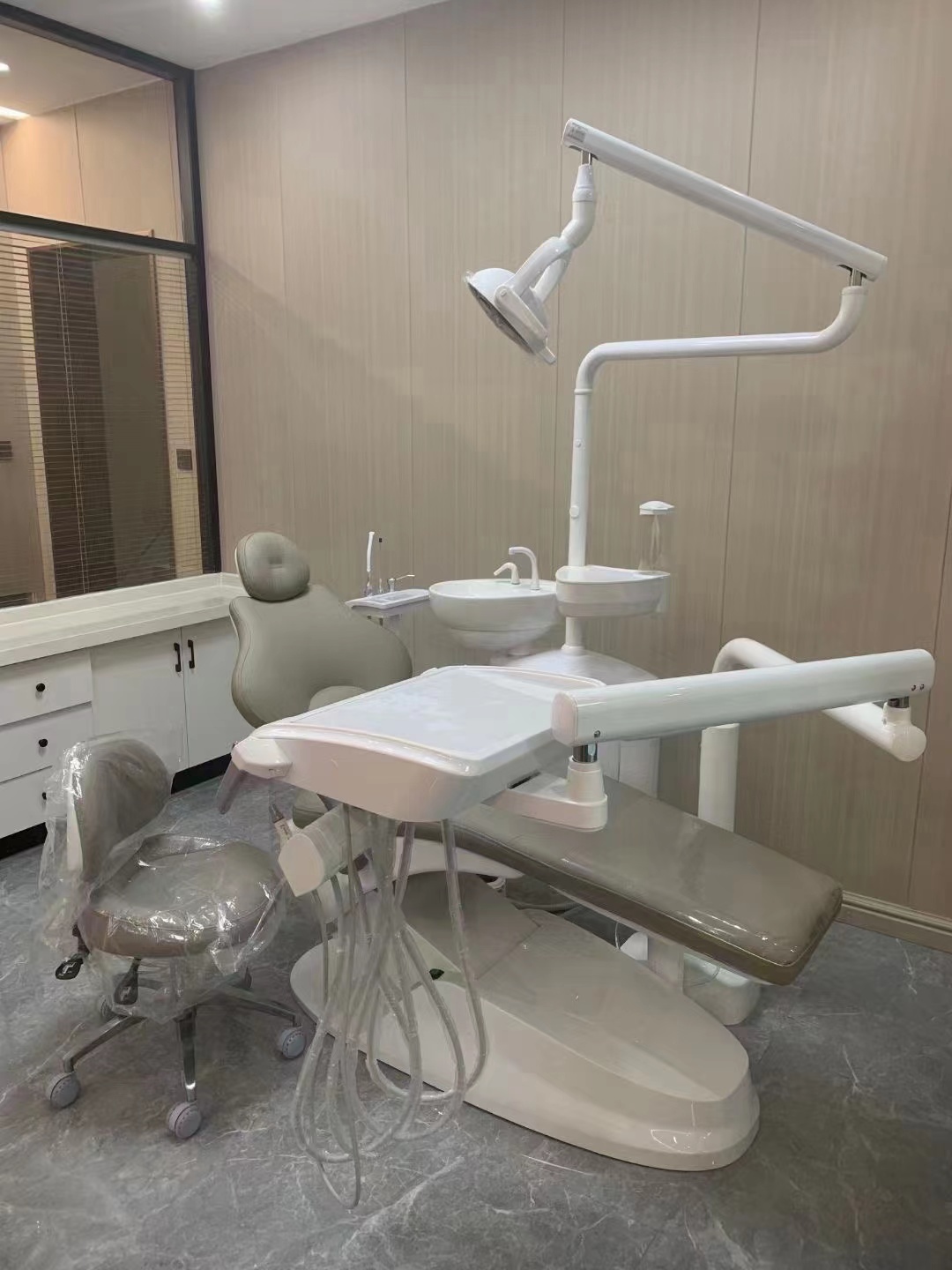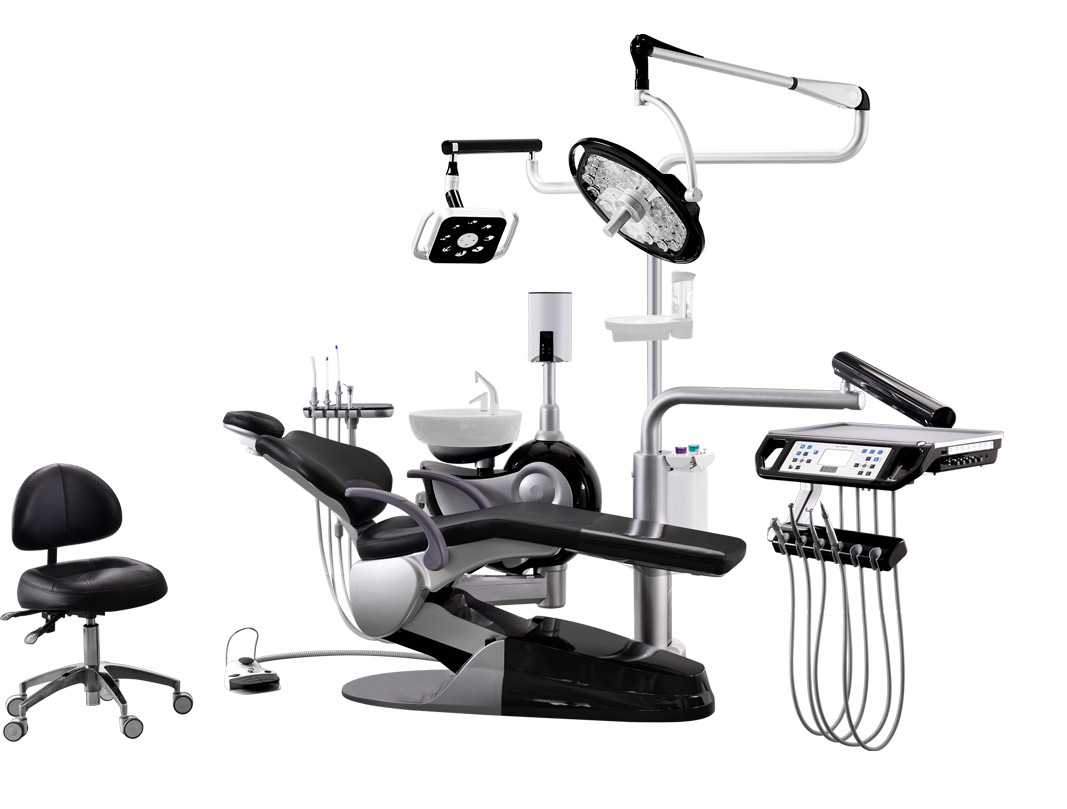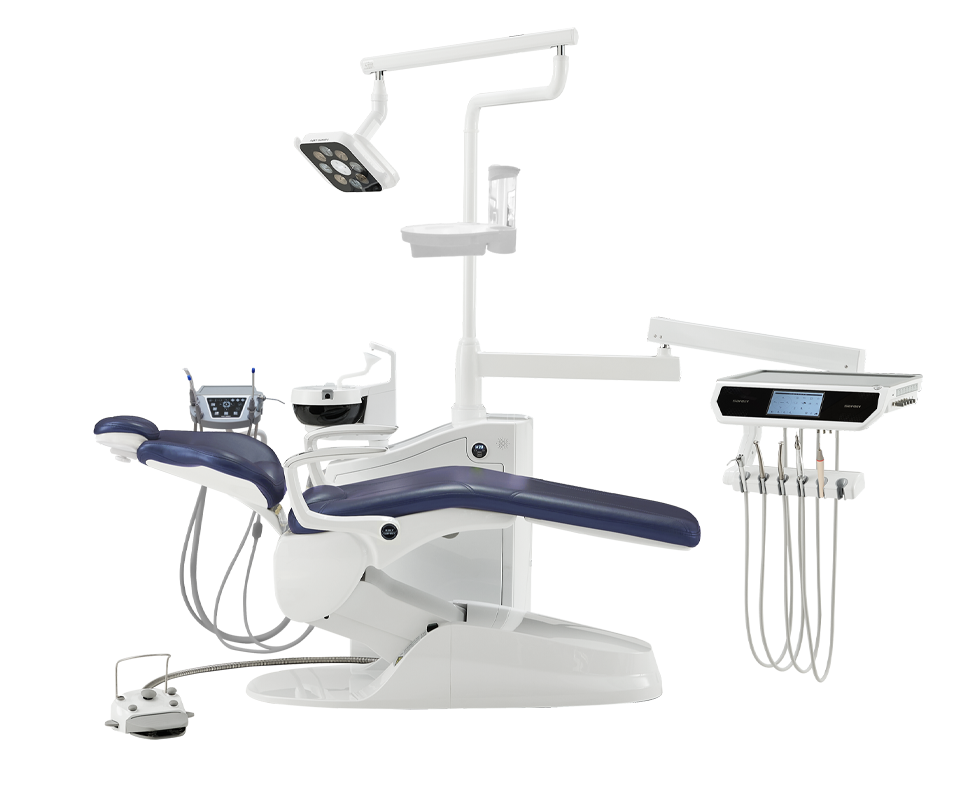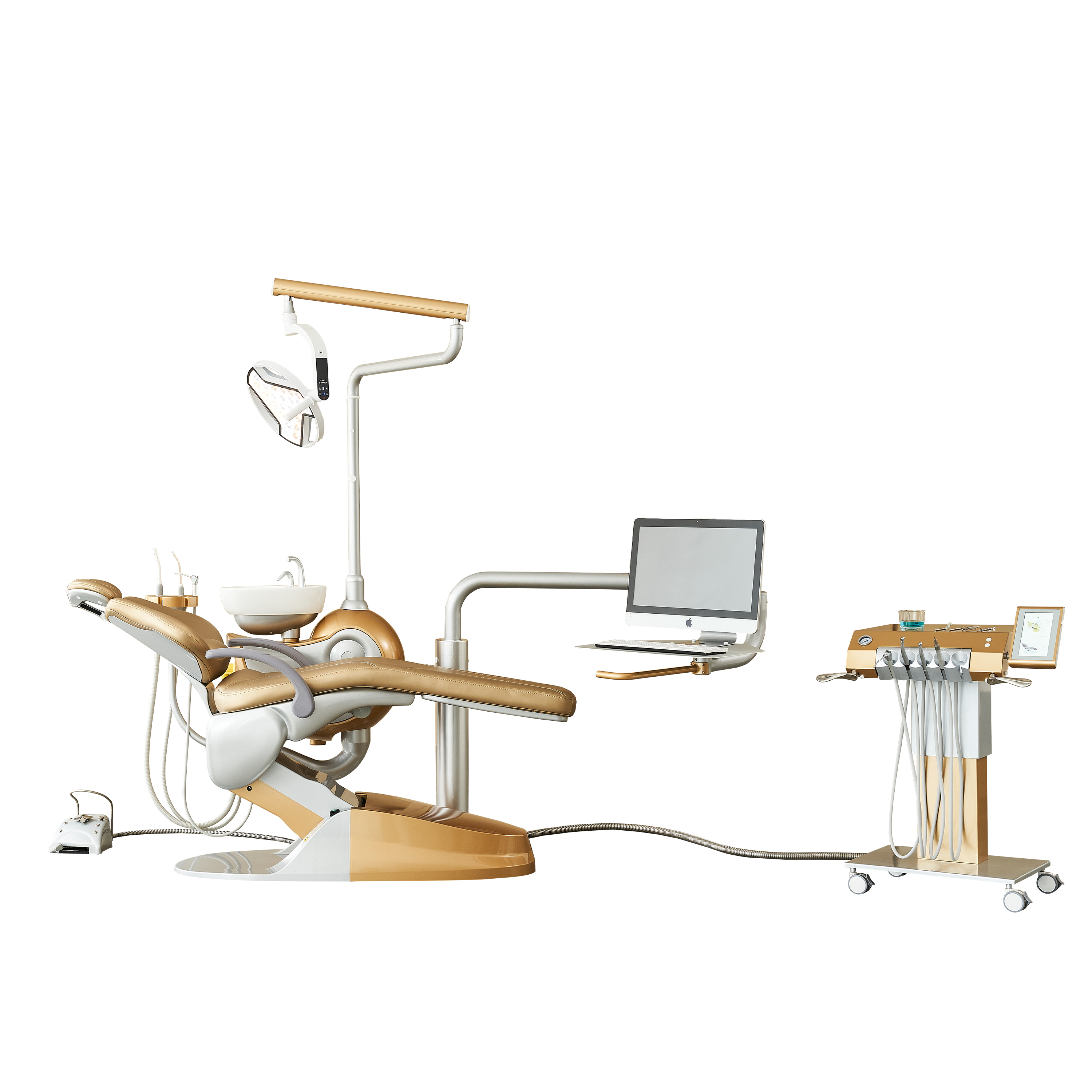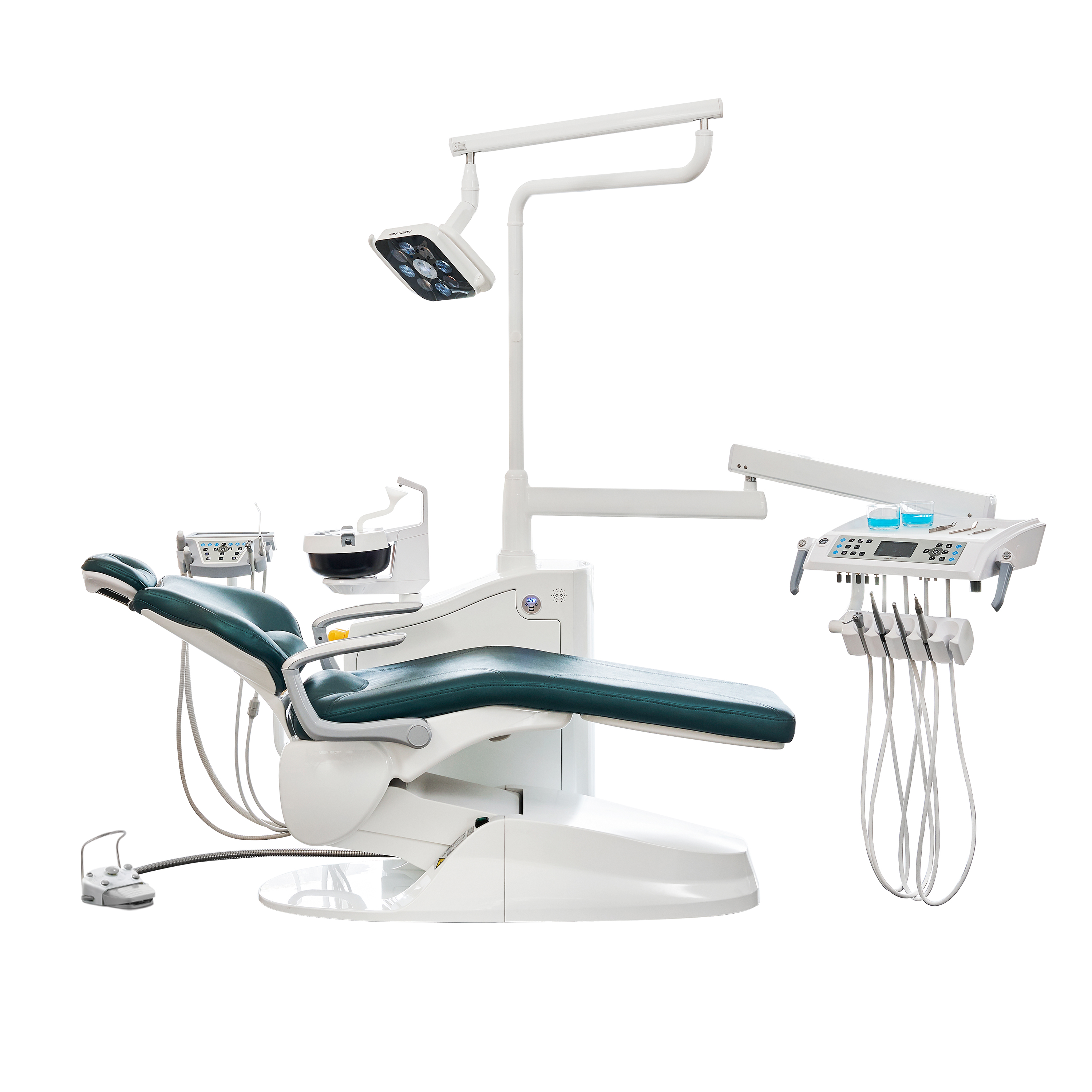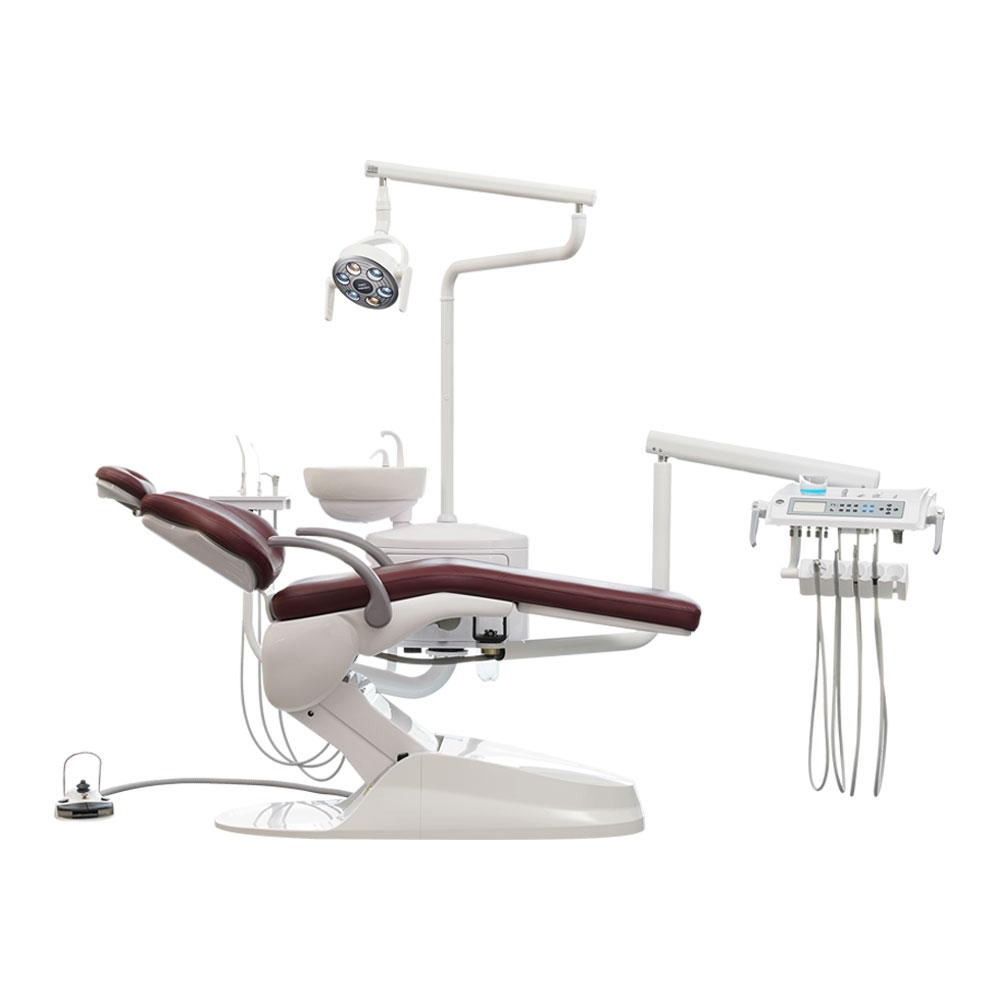Dental chairs are essential equipment in any dental clinic, and their frequent use can lead to maintenance challenges. One common issue faced by dental practitioners is weak suction, which is crucial for maintaining a clean treatment area. This guide outlines the steps to troubleshoot and resolve weak suction problems effectively.
1. Check Pressure Levels
Dental Chair Pressure: Ensure that the pressure gauge on the dental chair reads approximately 0.6 MPa.
Tap Water Pressure: Verify that the tap water pressure is around 0.3 MPa. Insufficient pressure can directly impact suction performance.
2. Inspect the Holder Valve
Testing Gas Switch: Examine the holder valve's gas switch. Make sure the small square body of the holder valve is properly positioned in the hanging bar groove.
Exhaust Noise Check: Press down on the holder ears and listen for exhaust noise. If there is a sound but it does not rebound, this indicates a potential blockage in the output trachea or a clogged nozzle.

3. Air Filter Maintenance
Check for Blockages: Inspect the air filter for any blockages that may restrict airflow. A clean filter is essential for optimal suction performance.

4. Weak Suction Valve Inspection
Clean Weak Suction Valve: Verify that the weak suction valve is not blocked. If it is, clean it thoroughly to restore functionality.

5.Check whether the three-level water filter needs cleaning and whether the South Korea imported filter needs to be replaced
5. Water Filter Maintenance
Three-Level Water Filter: Check whether the three-level water filter that South Korea imported requires cleaning or if it needs replacement.

6. Inspect Weak Suction Pipe
If no issues are found with the above components, proceed to check the weak suction pipe connected to the general integrated valve in the chassis:
Gas Presence in Pipeline: Remove the transparent pipe above and check for gas flow. If gas is present, unscrew the valve body screws and clean the inner cavity.
Blockage Diagnosis: If there is no gas in the pipeline, it may be blocked due to winding or other issues. Clear any blockages to restore proper function.

Conclusion
Regular maintenance of dental chairs is crucial for ensuring their longevity and reliability. By following these troubleshooting steps, dental professionals can effectively address weak suction issues and maintain a high standard of care in their practices. Remember, consistent checks and timely maintenance can prevent minor issues from escalating into major problems, ultimately enhancing patient comfort and trust in your services.

